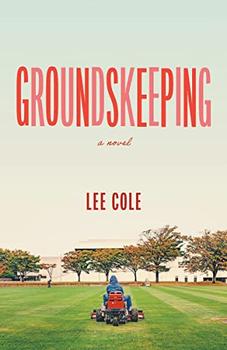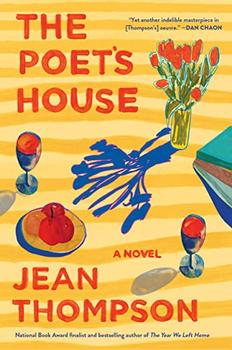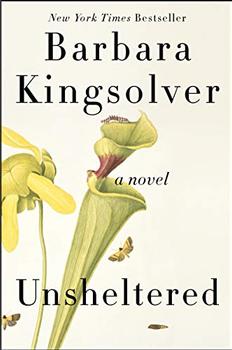Summary | Excerpt | Reviews | Beyond the book | Read-Alikes | Genres & Themes | Author Bio

Critics' Opinion:
Readers' Opinion:
First Published:
Mar 2022, 336 pages
Paperback:
Feb 2023, 336 pages
 Book Reviewed by:
Book Reviewed by:
Rebecca Foster
Buy This Book
Lee Cole grew up in rural Kentucky and describes its religious, working-class people without condescension. His protagonist Owen Callahan, who also has affection for Kentucky but has spent time elsewhere, pairs an insider understanding of country life with an observer's insight into its problems. The excellent first paragraph of Groundskeeping establishes this dual viewpoint immediately: "I've always had the same predicament. When I'm home, in Kentucky, all I want is to leave. When I'm away, I feel homesick for a place that never was."
Owen, 28, comes from factory workers and a lower-class background; his grandfather, Pop, traveled the country as a hobo in his youth. Owen, after a disastrous stint in Colorado — he started off in forestry work but ended up homeless, living in his car and doing drugs — is back home, staying in Pop's basement and joining him for fast food and John Wayne movies. He has a groundskeeping job on the campus of Ashby College, and he wants to be a writer, so he enrolls in a creative writing class.
At a student party early in his first semester, he meets 26-year-old Alma Hadzic, Ashby's writer-in-residence (see Beyond the Book), and is smitten. He thinks she's interested in him, too, though she's currently dating someone else. Alma was born in the former Yugoslavia soon before war broke out. Her Bosnian parents fled with her to northern Virginia, where they assimilated and got white collar jobs in the medical field.
The novel takes place in 2016–17, and Donald Trump's election serves as an incendiary topic that divides families and colleagues. Owen can't understand why his family supports Trump when his stepfather's factory is letting workers go; he believes that working-class people are being duped into electing a politician who doesn't have their best interests at heart. Cole ties this into a wider sense of the country being a "house divided," in Abraham Lincoln's words.
Indeed, from the Civil War onward, Kentucky has been a battleground between two halves, geographically and ideologically, so it is an ideal setting. Cole crafts awkward, darkly funny scenes that reveal how different Owen's and Alma's points of reference are: when Alma eats at a Cracker Barrel for the first time; when Owen explains to his evangelical Christian mother that Alma is a cultural Muslim; when Alma's father likens Trump's America to Bosnia in that ordinary people welcome the excuse to act on their hatred.
There are stereotypes to be overcome as Owen introduces Alma to Kentucky culture and slang. Cole dwells on the paradox that stereotypes are insulting, unfair and overly simplistic but, at the same time, hold some truth. "It was a strange thing, how thoughtlessly people trucked in these stereotypes," Owen thinks to himself. "I was guilty of it, too, of course." He remembers his professor's advice: "Don't dress all your backwoods characters in camo and have them chewing tobacco, he'd said. This was easy for him to say, as someone who had not come from a rural place. But looking around, many of the people were wearing camo, and they were dipping Skoal and spitting the brown juice into Mountain Dew bottles."
The gentle satire of the pretensions of writing programs is an element that I particularly enjoyed. For instance, a graduate student tells Owen about his experience as a teaching assistant: "I had these grand ideas that I'd teach them about selfhood and identity and the personal essay as a process of self-disclosure and all that. But I had to spend most classes explaining the difference between past and present tense. They switch between the two willy-nilly."
Groundskeeping has so much going for it: three-dimensional characters, vivid scenes ripe for the Netflix treatment, timely themes of class and political divisions, and touching relationships, including a romance you'll care about. Whether this relationship is going to survive long-term is uncertain: Alma resents Owen writing about her and her family, and they are offered job opportunities that would separate them by several states.
The title connotes standing one's ground, but also cultivating home and identity. Should you stay where you grew up, or try to make a life as an exile? The novel is a take on classic dilemmas of nature versus nurture and fate versus choice. Moving past stereotypes to develop true empathy is a heartening trajectory in this supremely likable story. It's one of my favorite novels of the year so far.
![]() This review was originally published in The BookBrowse Review in April 2022, and has been updated for the
March 2023 edition.
Click here to go to this issue.
This review was originally published in The BookBrowse Review in April 2022, and has been updated for the
March 2023 edition.
Click here to go to this issue.

If you liked Groundskeeping, try these:

by Jean Thompson
Published 2023
A warm and witty story of a young woman who gets swept up in the rivalries and love affairs of a dramatic group of writers.

by Barbara Kingsolver
Published 2019
A timely novel that interweaves past and present to explore the human capacity for resiliency and compassion in times of great upheaval.





The House on Biscayne Bay
by Chanel Cleeton
As death stalks a gothic mansion in Miami, the lives of two women intertwine as the past and present collide.

The Flower Sisters
by Michelle Collins Anderson
From the new Fannie Flagg of the Ozarks, a richly-woven story of family, forgiveness, and reinvention.

The Funeral Cryer by Wenyan Lu
Debut novelist Wenyan Lu brings us this witty yet profound story about one woman's midlife reawakening in contemporary rural China.
Your guide toexceptional books
BookBrowse seeks out and recommends the best in contemporary fiction and nonfiction—books that not only engage and entertain but also deepen our understanding of ourselves and the world around us.